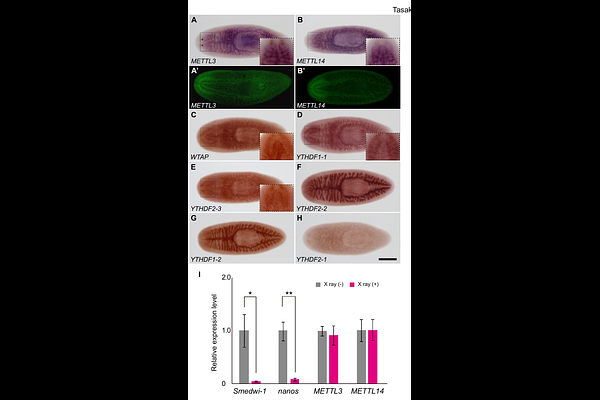Contributions of m6A RNA methylation to germline development in the planarian Schmidtea mediterranea

Contributions of m6A RNA methylation to germline development in the planarian Schmidtea mediterranea
Tasaki, J.; Rouhana, L.
AbstractN6-methyladenosine (m6A) is one of the most prevalent post-transcriptional modifications of eukaryotic RNA molecules. This post-transcriptional modification is essential in biological contexts ranging from metabolism to cellular differentiation and neuronal function. While the role of m6A RNA regulation in the soma of planarian flatworms has been previously studied, the presence and biological relevance of this regulatory pathway in the germline of these or other lophotrochozoans remains unknown. Here, we characterize m6A RNA regulation factors in the planarian Schmidtea mediterranea and analyze their function in development of the germline. Enriched expression of orthologs of m6A methyltransferase complex components, namely Smed-METTL3, Smed-METTL14, and WTAP, was detected in ovaries and testes of S. mediterranea. Perturbation of these factors by RNA-interference (RNAi) disrupted intermediate steps in oogenesis and spermatogenesis, but the presence of germline stem cells was not affected. Expression of m6A "reader" homologs was also detected in the planarian gonads. Sperm development defects were observed upon Smed-YTHDF2-3 RNAi, and combined knockdown of Smed-YTHDF2-3, Smed-YTHDF2-2, or Smed-YTHDF1-2 with that of writers led to increased frequency of germline development defects. These results indicate that regulation of RNA by m6A methylation supports male and female germline development in planarian flatworms.